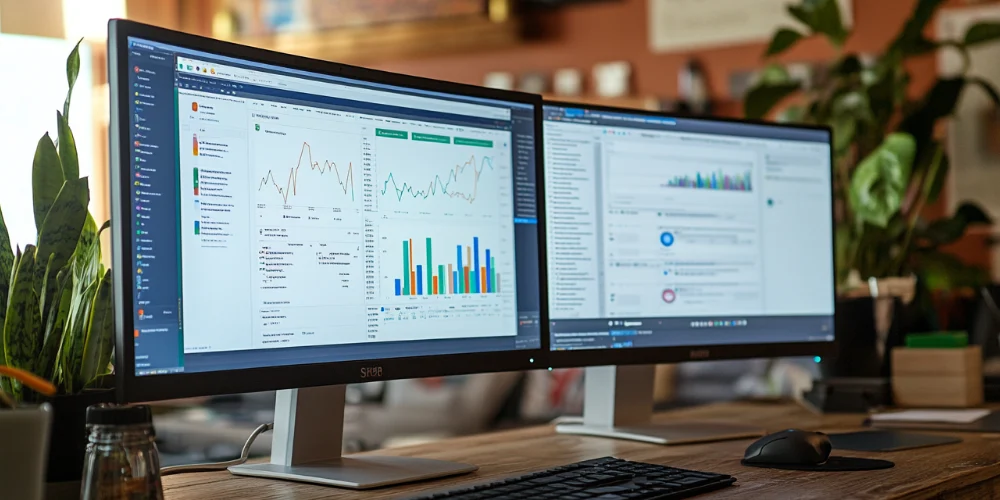In digital marketing, few things are as foundational to success as links. Whether you’re aiming to climb the rankings in Google’s organic search results or hoping to appear in the coveted Local Pack, links play a key role in boosting your website’s visibility and credibility. In this post, we’ll explain why links matter for SEO and local search results, how they influence rankings, and what strategies can help your business earn high-quality backlinks that drive results.
What Are Links in SEO?
Understanding Backlinks and Internal Links
In SEO, a link connects one website (or page) to another. There are two primary types:
- Backlinks (Inbound Links): Links from other websites that point to yours.
- Internal Links: Links within your own site that connect one page to another.
Both types matter, but backlinks carry more weight in building authority and search engine trust.
The Role of Links in Google’s Algorithm
Links have been a core ranking factor since the beginning of Google. Google sees each backlink as a vote of confidence in the quality of your content. The more high-quality websites link to you, the more trusted and relevant your site appears.
Why Links Matter for SEO
Links Pass Authority and Trust
When a reputable site links to yours, it passes domain authority and trust signals, boosting your site’s credibility in Google’s eyes. This increases your chances of ranking higher in organic search results.
Improved Indexing and Crawlability
Search engine bots use links to discover and index new pages. Without internal and external links, your content may remain invisible to search engines, no matter how good it is.
Boosting Page and Domain Authority
Backlinks from authoritative sites improve your domain authority, which helps all pages on your site rank better. This is why an effective link-building strategy contributes to overall website performance.
Why Links Matter for Local Search Results
The Influence of Links on Local Pack Rankings
Local businesses often compete in a smaller geographical space, but that doesn’t mean the competition is any easier. Google uses links to help determine local relevance and authority, especially for inclusion in the Local Pack (the top 3 map results).
Citation Links vs. Traditional Backlinks
In local SEO, citation links (mentions of your business name, address, and phone number with a link) from directories like Yell, Yelp, and Thomson Local are key. These links provide geographic signals and help validate your business location.
Location-Relevant Backlinks
Getting backlinks from local news sites, blogs, or chambers of commerce adds strong geo-relevance, boosting your business’s visibility in location-specific searches.
How Links Affect Search Engine Rankings
Google’s Link-Based Ranking Factors
Google looks at several link-based signals:
- Quality of the linking domain
- Relevance of the linking page
- Anchor text used
- Link placement (contextual links hold more weight)
Anchor Text Optimisation
The words used in a hyperlink, known as anchor text, help Google understand what the linked page is about. Using descriptive, keyword-rich anchor text improves the SEO value of your links, but over-optimising can lead to penalties.
Link Building Strategies That Work
1. Guest Posting
Writing high-quality guest posts for industry-relevant blogs is a tried-and-true way to build backlinks. It boosts your credibility and earns you a valuable contextual link.
2. Resource Link Building
Create helpful guides or tools others want to link to. For example, a “Local SEO Checklist” or “Free Keyword Planner” could earn you links from blogs, forums, or small business sites.
3. Business Directory Listings
Add your business to authoritative directories like:
These citation-style links help both SEO and local search.
4. Testimonials and Reviews
Offering a testimonial in exchange for a link is a simple and ethical way to gain backlinks from companies whose services you use.
5. Broken Link Building
Find broken links on high-authority websites in your niche. Offer your own page as a replacement. It’s a win-win for both sides.
How to Monitor and Measure Link Success
Use SEO Tools
Platforms like Ahrefs, SEMrush, and Moz allow you to track:
- The number of backlinks
- Referring domains
- Link quality and authority
- Anchor text distribution
Track Rankings and Traffic
Monitoring your organic rankings and local visibility after earning new links helps you measure their impact over time.
Look at Referral Traffic
Use Google Analytics to see which links bring actual visitors to your site. High-converting backlinks are gold for SEO and lead generation.
Common Link Building Mistakes to Avoid
1. Buying Links
This violates Google’s Webmaster Guidelines and can result in manual penalties or ranking drops.
2. Using Spammy Directories
Stick to reputable citation websites. Avoid low-quality, generic directories that offer no SEO value.
3. Over-Optimising Anchor Text
Using the same exact keyword in every link looks unnatural. Mix in branded and generic anchor texts for a natural link profile.
4. Ignoring Local Opportunities
Many businesses forget that local news outlets, community blogs, and local business groups are excellent sources of location-specific backlinks.
Why Links Matter for SEO and Local Search Results: Real-World Impact
Case Study: Local Business Going from Page 5 to Page 1
A small cleaning company in the UK went from ranking on page 5 to appearing in the top 3 on Google’s Local Pack after:
- Earning backlinks from local blogs
- Updating directory listings
- Gaining positive Google reviews
- Publishing location-based blog content
This shows how backlinks and local relevance work hand in hand.
Impact on Conversions
Better rankings = more visibility = more clicks = more customers. It’s not just about traffic-links indirectly improve your conversion rates by increasing trust and authority.
The Future of Links in SEO and Local Search
AI and Link Relevance
Search engines are getting smarter. AI now helps determine whether a link is truly relevant and contextually useful. So, future link-building must focus more on quality over quantity.
Entity-Based SEO
Search engines now look at entities (people, places, things) and how they relate. A link to your business that includes context about your industry, services, and location is more valuable than ever.
Local SEO and Voice Search
With the rise of voice search, location-specific and structured data become more crucial. Links to your business with schema markup can help voice assistants deliver your site as an answer.
Why Links Matter for SEO and Local Search Results: Final Thoughts
So, why do links matter for SEO and local search results? Because they’re one of the most powerful signals search engines use to rank websites. Whether you’re a national e-commerce site or a local tradesperson, earning and managing links strategically can put your business in front of the right audience.
You need a sustainable link-building strategy that balances quality, relevance, and geographic focus to succeed. The more trustworthy and connected your website appears online, the more visibility you’ll gain in organic and local searches.
If you’re ready to improve your rankings and grow your business, now is the time to prioritise your link strategy. Why links matter for SEO and local search results is not just a theory; it’s a proven path to online success.

















